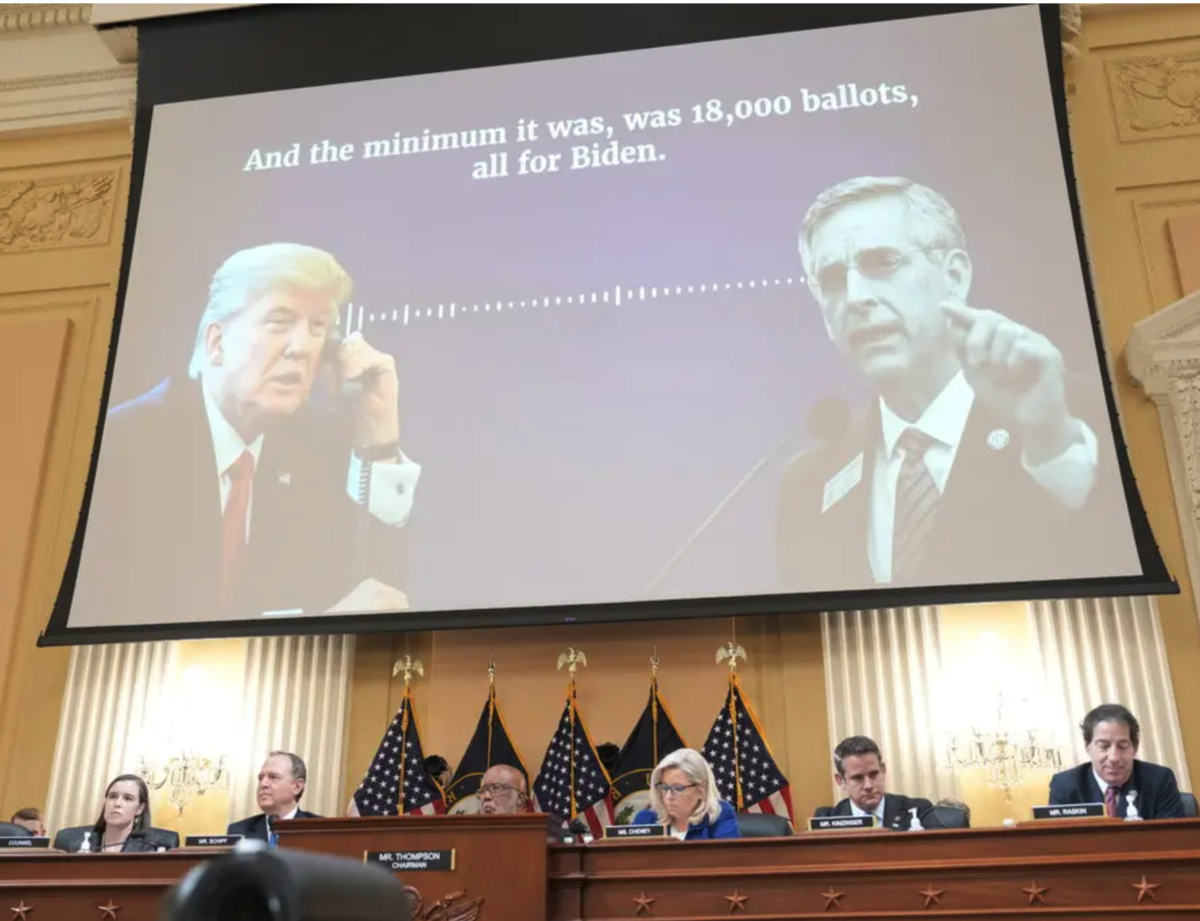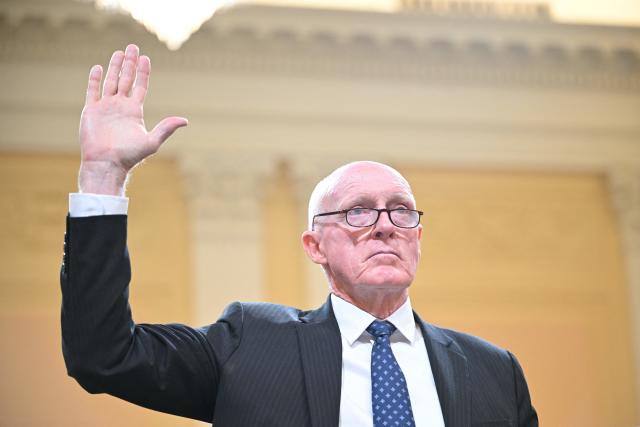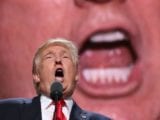Staff Report –
Donald Trump’s attempt to hold onto power even though he knew he lost the 2020 election was described as “a coup in search of a legal theory,” according a conclusion drawn by Adam Schiff of California, who led the questioning of witnesses Tuesday in the fourth gripping hearing of the Select House Committee investigating the Jan. 6 Capitol attack.
The effort by Trump, his lawyer Rudi Giuliani, discredited attorney John Eastman, his chief of staff Mark Meadows and others was a corrupt, illegal “campaign of pressure … with threats of violence and death.”
“The hearing on Tuesday amounted to the most comprehensive picture to date of a president who directed an attack on democracy itself and repeatedly reached into its essential machinery — the administration of free and fair elections,” according to coverage by The New York Times.
Using sworn, in-person testimony from rocked-ribbed Republicans who somehow stood up to this campaign of pressure and videotaped depositions from other political officials, the committee showed how the former president and allies “laid siege” to state lawmakers and election officials after the votes were officially counted in a wide-ranging “plot” to reverse the outcome and deny Joe Biden the election victory he achieved.
Lawmakers showed how long before a mad mob of Trump supporters crashed the Capitol, Trump used election lies to whip up violence against anyone who dared to deny his false claims of victory.
“The president’s lie was and is a dangerous cancer on the body politic,” Schiff said. “If you can convince Americans they cannot trust their own elections, that any time they lose is somehow illegitimate, then what is left but violence to determine who should govern?”
The committee demonstrated beyond a reasonable doubt how Trump and his co-conspirators sought to persuade state election officials in Arizona and Georgia to avoid certifying vote counts to hand Trump control of the country in clear violation of law and precedent. They showed how Trump’s team of criminal cohorts sought to persuade lawmakers to create slates of “fake” electors, hoping to convince Vice President Mike Pence to give them legitimacy to subvert the official count of electoral votes on Jan. 6.
The committee presented testimony from four brave officials who stood up to the former president, rejecting his increasingly desperate pleas for their help to subvert democracy, often in the face great personal threats to their lives and livelihoods.
Arizona House Speaker Rusty Bowers, who has been described as a rock-ribbed Christian Republican, testified that he prayed to do God’s will, which meant standing up to Trump. He told the former president in one of several phone calls when he was bullied by Trump to call the legislature back into session to certify the fake electors: “You are asking me to do something against my oath, and I will not break my oath.”
“I didn’t want to be used as a pawn,” Bowers testified.
His defiance had a cost.
Bowers told the committee that after refusing to cooperate with Trump’s scheme, a truck was driven through his neighborhood playing a recording that declared him to be a pedophile. Bowers, who spoke about the Constitution in reverential and spiritual terms, had tears in his eyes as he described his gravely ill daughter enduring some of the harassment outside their house. She died last year.
Georgia Secretary of State Brad Raffensperger also testified that after he turned down Trump’s request in a phone call to “find the votes” that would hand him the election, his wife of 40 years received “sexualized” threats by text and people broke into his daughter-in-law’s house.
“It’s turned my life upside-down,” said Wandrea Moss, a Georgia election worker who was implicated by name in one of Trump’s false election fraud allegations, in her own emotional testimony. Ms. Moss, who is known as Shaye, testified how it affected her life to be attacked by the president of the United States.
“It’s affected my life in a major way — in every way — all because of lies,” she said.
Vice Chair Liz Cheney, the Wyoming Republican, singled out Pat Cipollone, Trump’s White House counsel, who repeatedly pushed back on his efforts to overturn the election.
“Our committee is certain that Donald Trump does not want Mr. Cipollone to testify here,” she said. “But we think the American people deserve to hear from Mr. Cipollone personally. He should appear before this committee, and we are working to secure his testimony.”
The plan to enlist the help of state lawmakers to create fake slates of electors appears to have begun just days after the election when a pro-Trump lawyer, Cleta Mitchell, sent an email suggesting the idea to John Eastman, another lawyer close to Mr. Trump.
“A movement is stirring,” Ms. Mitchell wrote in the email, introduced as evidence at the hearing. “But needs constitutional support.”
By Nov. 18, 2020, the committee said, another pro-Trump lawyer, Kenneth Chesebro, had joined the effort, writing a memo suggesting that the Trump campaign should organize its allies in several swing states to draft fake slates of electors. Around Thanksgiving, still others signed on to the plan, including Giuliani and Meadows, according to a recorded deposition from Cassidy Hutchinson, an aide to Meadows.
Eventually, the Republican National Committee was brought in as well, Ronna McDaniel, the group’s chairwoman, said in a recorded deposition played at the hearing.
Ms. McDaniel testified that during a call with Trump, he put Eastman on the phone with her “to talk about the importance of the R.N.C. helping the campaign gather these contingent electors.”
All of this was allowed to go forward despite the fact that several lawyers for the Trump campaign felt it was illegal. The White House Counsel’s Office said as much during a meeting with Meadows and Giuliani, according to Ms. Hutchinson.
And even those pushing the scheme conceded it was groundless.
“We’ve got lots of theories,” Bowers recalled Giuliani saying at a meeting with Arizona legislators. “We just don’t have the evidence.”
On another occasion, as Bowers questioned Eastman about how there could possibly be a legal way for him to simply name new electors, the lawyer had no answer, replying, “Just do it and let the courts work it out.”
Even after Arizona had certified its electors, Eastman and Biggs called Bowers, pushing him to launch a fresh attempt to decertify the vote after the fact.
Raffensperger and Gabriel Sterling, Georgia’s top two election officials, recounted a similar story: pressure from Trump to overturn the election that ultimately led to threats and intimidation when they pushed back.
Raffensperger was on a call with Trump on Jan. 3, 2021, during which Trump pushed him to “find” enough votes to overturn the outcome and vaguely threatened him with “a criminal offense.”
Sterling is perhaps best known for having given an impassioned speech on Dec. 1, 2020 in which he addressed Trump directly, telling him that his lies about the election were leading to violence against election workers.
“It has all gone too far — all of it,” Sterling said in the speech that was played at the hearing. “It has to stop. Mr. President, you have not condemned these actions or this language.”
Shortly after the election, Trump and his allies seized on conspiracy theories, falsely claiming that election workers in Atlanta had been caught on video quietly taking thousands of ballots from a suitcase and feeding them into counting machines. Even though the allegations were quickly investigated and debunked, Sterling said, Trump and his lawyers continued to push the claims in public and on social media.
Fighting back against this flood of misinformation, Sterling said, was like “a shovel trying to empty the ocean.”
The committee showed the breathtaking sweep of the pressure campaign across seven states, playing clips from officials in Michigan and Pennsylvania who were inundated with thousands of text messages, phone calls, protesters near their homes and threats. At one point, Bryan Cutler, the Republican House speaker in Pennsylvania, asked Trump’s legal team to stop its daily phone calls to him because they were “inappropriate.”
The plan found eager allies in Congress, however.
The committee showed texts that an aide to Johnson had sent to an aide to Pence indicating that Johnson wanted to hand-deliver a slate of fake electors from Wisconsin to the vice president on Jan. 6. Mr. Pence’s aide responded, “Do not give that to him.”
A spokesman for Johnson on Tuesday blamed the exchange on his chief of staff, saying that the senator “had no involvement” in creating an alternate slate of electors.
The hearing came with an emotional ending, with the testimony from Ms. Moss, an election worker in Atlanta who processed votes with her mother, “Ms. Ruby” Freeman, on Election Day. In early December, Giuliani appeared at a state legislative hearing in Georgia and falsely accused her and her mother of taking ballots from a suitcase and illegally running them through voting machines.
Giuliani’s baseless allegations were amplified by right-wing media outlets and by Trump, who mentioned Ms. Moss’s name several times during his call with Raffensperger. After the accusations went viral, Ms. Moss was subjected to racist threats by phone and text and became afraid to leave her house.
She told the committee that her mother fled her home after the FBI warned her that she could be in danger. Ms. Moss also recalled a panicked call from her septuagenarian grandmother, who said people had arrived at her home seeking to make a “citizen’s arrest.”
Unfortunately, public opinion polls show that only about 9 percent of the American public is actually watching the full hearings, so while clips on social media are going viral, it is not clear that the hearings have yet penetrated the partisan divide or whether they will make the critical difference they need to make for democracy to survive this partisan onslaught in November.
Poll: Nearly Sixty Percent of Americans Say Trump Should be Charged for Jan. 6 Insurrection
___
If you support truth in reporting with no paywall, and fearless writing with no popup ads or sponsored content, consider making a contribution today with GoFundMe or Patreon or PayPal.















